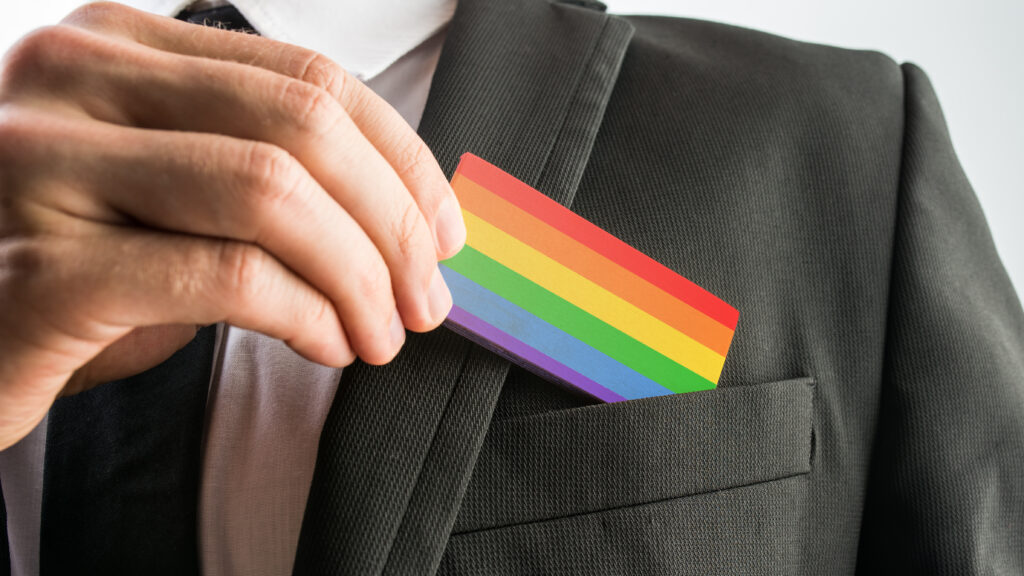
‘Open For Business’ City Ratings Reveal Inclusive LGBTQ+ Cities and More!
Open For Business – a global coalition of companies that are proving to the world that diversity and inclusion promote better business and economic growth – has released its City Ratings Report for 2022.
The coalition’s primary purpose is to advance LGBTQ+ rights worldwide and they are doing this on both global and local levels. And on the international level, they are building a consensus in the business community that anti-LGBTQ+ policies run counter to the interests of business and economic development. At the local level, they are creating advocates in local business communities and strengthening local business voices by providing them with evidence and fact-based arguments, which is where reports like the City Ratings come into play.
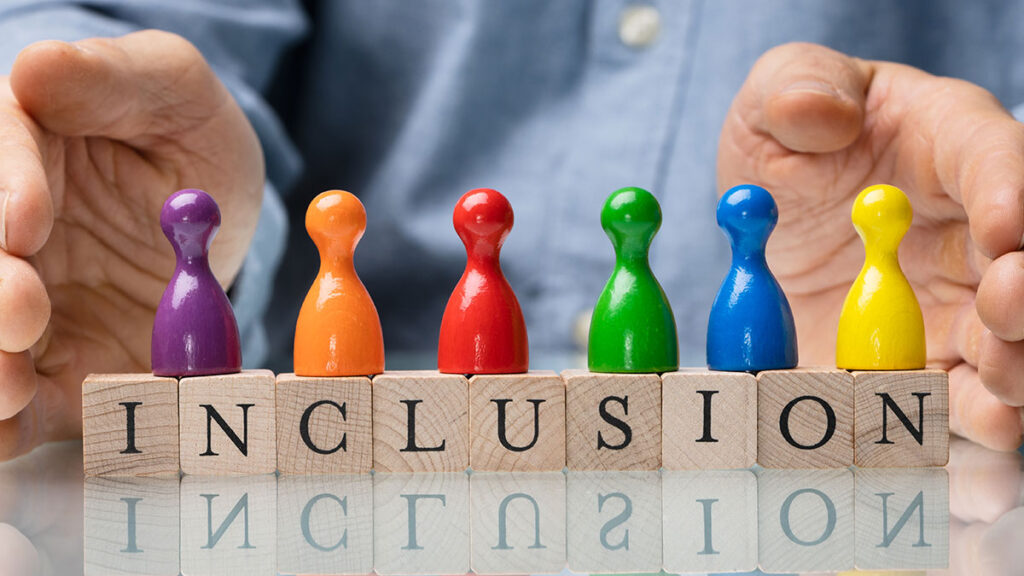
The Open For Business City Ratings, in partnership with Accenture, analyzes the latest data on 145 cities to present the economic case for LGBTQ+ inclusive cities and provide a consolidated view of how inclusive and competitive each city is. They are intended to present a guide to which cities are open, inclusive, and competitive – and which are not. This is the third version of this biannual report, the first one being published in 2018.
As shown in the two previous reports, LGBTQ+ inclusion and economic development are tightly connected. New data in this report shows that wealthier cities tend to be more LGBTQ+ inclusive and that cities with strong financial and creative economies have the highest levels of LGBTQ+ inclusion in the world. The most likely explanation for this is that inclusion and economic competitiveness are mutually reinforcing. Cities that are open for business signal that they are welcoming places for talented individuals and encourage the free flow of ideas, which spurs innovation. This enhances their competitiveness, which leads to more open-mindedness, creating a virtuous cycle.
Not all of the news was good though. More cities fell in their ratings than improved their performance. Globally, 7% of cities received higher ratings compared to 2020, while 28% of cities received lower ratings. Before we take a closer look at the rankings let us familiarize ourselves with what these rankings actually mean.
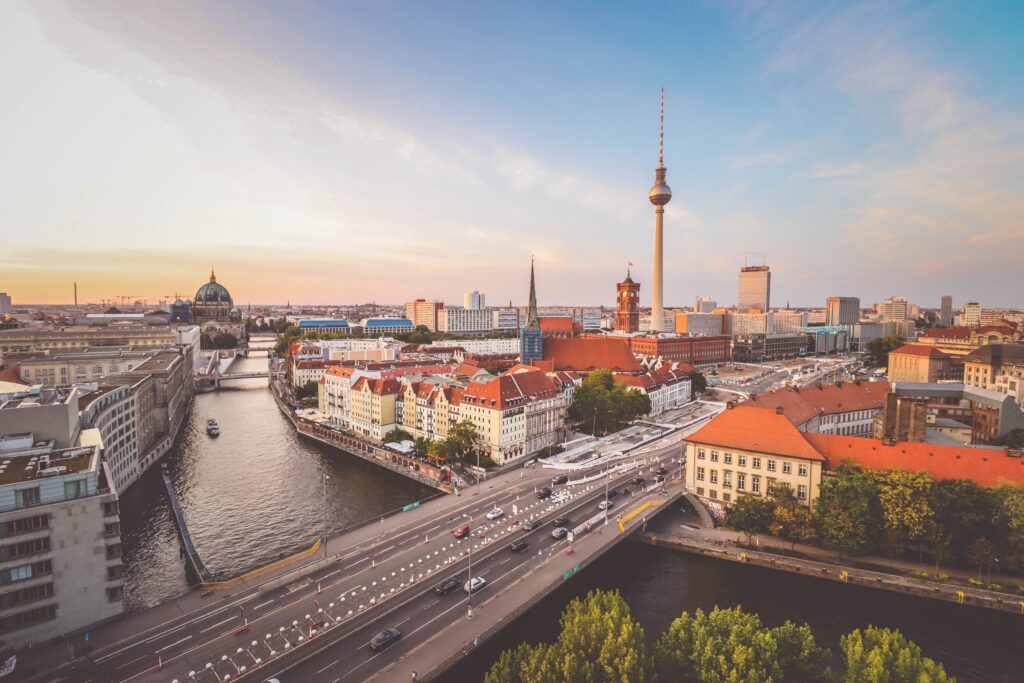
According to the report, a high rating means a city is “….easy to operate in, with low barriers to setting up and running a business that has a transparent system of governance with a low risk of corruption. It also has a strong digital infrastructure; it’s a hub for skills and talent and has a healthy “innovation ecosystem”. It has a good quality of life and a dynamic cultural environment. Finally, an inclusive and competitive city is globally connected and a welcoming place for lesbian, gay, bisexual, transgender, and queer (LGBTQ+) people…”.
There are dozens of reports, data, indices, and rankings that compare these various attributes for the cities selected for this ranking. Open For Business collects and analyzes all of this data and synthesizes it in an effort to ensure that its rankings provide a consolidated view of how inclusive and competitive a city actually is. The rankings are tiered from A-level cities to E-level. Within each letter class the cities are subdivided into say CCC, CC, and C; with CCC being the most open for business of the ‘C’ category cities and C being the least open. The highest rating a city can get is AAA which is an honor bestowed upon cities such as London, Berlin, and Boston, with Amsterdam being at the very top of the AAA list of cities worldwide.
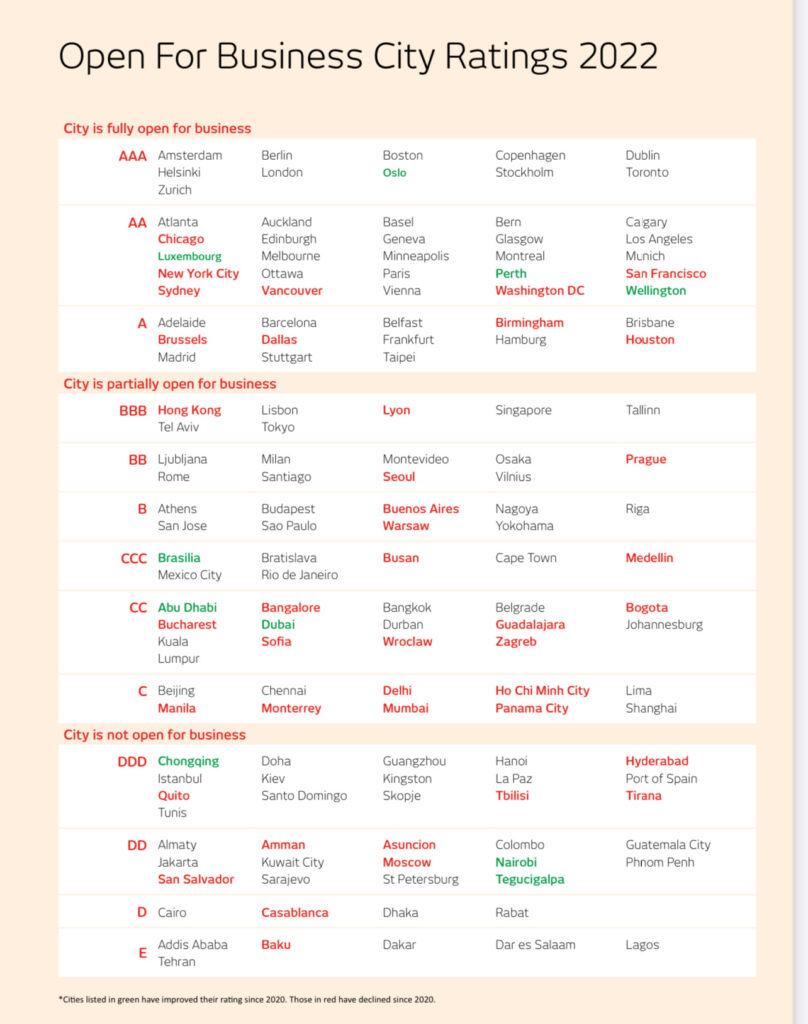
The report breaks the ratings down by global region. For Africa and the Middle East ratings were low, as expected. The highest-ranked city was Tel Aviv with a BBB rating. Literally, every other city scored CCC or lower after that. The worst cities for business with an E rating were: Addis Ababa, Dakar, Tehran, Lagos, and Dar es Salaam. Some improvement was seen in Nairobi, Abu Dhabi, and Dubai over previous years, however.
In the Asia Pacific region, Dhaka ranked lowest with a D rating while Auckland, Melbourne, Perth, Sydney, and Wellington came in on top with AA ratings. Hong Kong, Seoul, Busan, Mumbai, Manila, and Ho Chi Minh City all showed backsliding from previous years and are all ranked as ‘partially open for business’ with rankings ranging from BBB to C.
For Central and Eastern Europe Tallinn ranked highest with a BBB. Baku was at the bottom of the list with an E and Moscow wasn’t too far ahead of that with a DD. Numerous cities in the region declined in ratings from 2020 including Prague, Warsaw, and Bucharest.
Generally, for the USA and Canada, all cities ranked A and above with Boston and Toronto taking top honors with AAA ratings. The numerous backslides seen in New York City, Chicago, San Francisco, and Washington DC has been concerning.
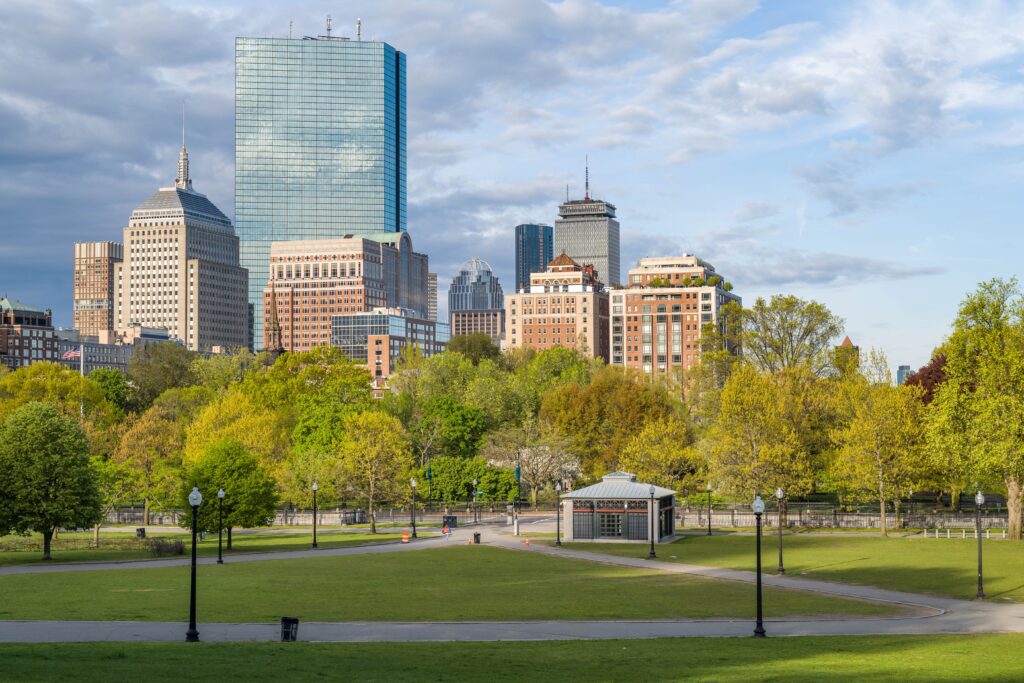
The Latin America and the Caribbean regions showed Montevideo and Santiago as the most inclusive with a BB rating. The lowest-ranked cities included Guatemala City and San Salvador with a DD. Brasilia showed some improvement with a CCC rating while Buenos Aires, Medellin, and Guadalajara showed a decline.
Western Europe had the highest concentration of AAA cities in the world including Dublin, Helsinki, and Stockholm. Oslo and Luxembourg showed an improvement in ratings while Birmingham, Brussels, and Lyon showed lower ratings than in previous years. Rome and Milan were the lowest-ranked in the region with BB.
These results are important to take note of, not only for the economic prowess of a given city but for our safety there as LGBTQ+ travelers. It stands to reason that the higher these cities rank on the Open For Business Report, the safer they are for us. Open For Business is committed to continuing this important work on behalf of our community and let’s face it, economic gain is a strong motivator for cities to improve social policy toward our community. Let’s hope it works.
For additional analysis and data click here for the full report.




